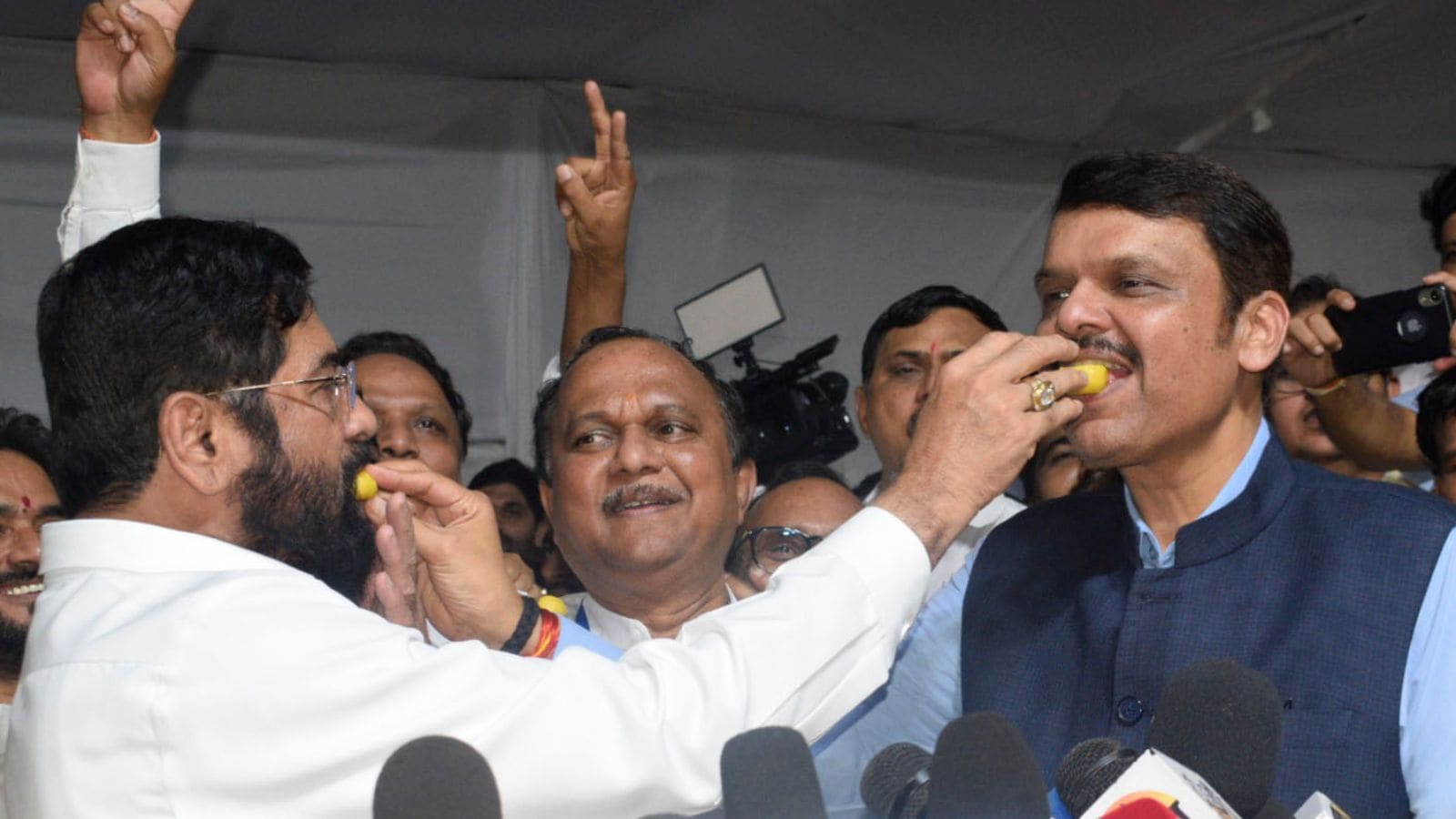 |
|
The recent meeting between Devendra Fadnavis and Eknath Shinde, key figures in the Maharashtra political landscape, underscores the ongoing uncertainty surrounding the formation of the next state government. The hour-long meeting, held just days before the anticipated swearing-in ceremony, highlights the internal dynamics and potential power struggles within the Mahayuti alliance – a coalition primarily composed of the BJP and the Shiv Sena. The fact that this was the first such meeting between the two leaders since the election results were announced speaks volumes about the delicate negotiations and power-sharing arrangements that are still being hammered out behind closed doors. The air of uncertainty is palpable, with speculation rife regarding who will ultimately assume the role of Chief Minister.
The involvement of other prominent BJP figures, like Girish Mahajan, who visited Shinde twice in the preceding 24 hours, further emphasizes the intensity of the behind-the-scenes maneuvering. These frequent visits and closed-door meetings suggest a complex web of negotiations involving various factions and interests within both the BJP and the Shiv Sena. The potential for disagreements over cabinet positions, policy priorities, and future political strategies is high, and the current state of flux indicates that a consensus has yet to be reached. The outcome of these negotiations will not only determine the composition of the next government but will also significantly shape the political trajectory of Maharashtra in the coming years.
The meeting between Fadnavis and Shinde, while seemingly innocuous on the surface, carries significant weight. Fadnavis, a seasoned BJP leader and former Chief Minister, possesses considerable political clout and experience. Shinde, currently the caretaker Chief Minister and leader of a faction within the Shiv Sena, represents a more recent shift in the state's political landscape. The dynamic between these two powerful figures is crucial to understanding the future of the Mahayuti government. The fact that such high-profile meetings are taking place so close to the swearing-in suggests that the final decisions regarding leadership and cabinet appointments are still pending. The ongoing negotiations reflect the inherent complexities of coalition politics and the delicate balancing act required to maintain a stable government.
The political climate in Maharashtra is charged with anticipation and uncertainty. The coming days will be crucial in determining the ultimate composition and leadership of the state government. The outcome of these negotiations will have far-reaching implications for the state's development, policies, and overall political landscape. The close proximity of this crucial meeting to the planned swearing-in ceremony underscores the high stakes involved and the pressure on the leaders to reach a consensus swiftly. The intricate dance of political negotiations, power-sharing agreements, and the individual ambitions of key players will undoubtedly continue to shape the political narrative in the coming weeks and months.
Beyond the immediate concerns of government formation, this situation highlights the broader challenges faced by coalition governments. Balancing the interests of different parties, managing internal conflicts, and ensuring a smooth functioning government are often fraught with complexities. The Maharashtra situation serves as a case study in the intricacies and potential pitfalls of coalition politics, offering valuable insights into the power dynamics at play and the importance of effective negotiation and compromise. The challenges faced in Maharashtra resonate with similar experiences in other states and countries, highlighting the universal challenges of governing through coalition arrangements.
Further analysis of the outcome of this meeting and the subsequent government formation will be essential in understanding the future direction of Maharashtra's political landscape. The role of various factions within the BJP and Shiv Sena, the influence of external actors, and the broader implications for the state's governance will all need to be considered. The events unfolding in Maharashtra serve as a reminder of the complexities and uncertainties inherent in the political process, even in seemingly stable coalition governments. Careful observation of the unfolding events and their long-term consequences is imperative for a thorough understanding of the Maharashtra political scene.
Source: Devendra Fadnavis meets Eknath Shinde, days ahead of Mahayuti govt swearing-in
